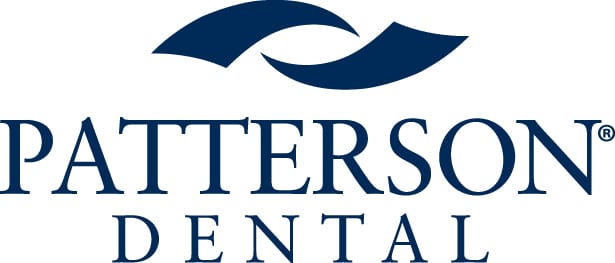“The reality is, that not everyone will get into dental school, some will be waitlisted,
but that doesn’t mean it will NEVER happen.”
Hi friends! I’m Dr. Bri Torgerson and I’m a General Dentist living and practicing in Saint Louis, Missouri.
I’ve had a pretty unique journey into, through, and after graduating dental school and my goal is to share those experiences to help you avoid my pitfalls.
This month, I want to talk about being waitlisted.
December 1st is traditionally the time in which the first-round picks of dental school candidates discover their dreams have come true. They’ve been accepted into dental school. If this is you, CONGRATULATIONS!!
You should feel honored and proud of yourself for accomplishing this feat because many will not know, and may never know that feeling. Don’t take it for granted.
The fear comes to those who either have not been chosen for an interview yet, or who have been chosen and have gone on or scheduled their interviews, but have been waitlisted.
Whether you’ve applied to one school or forty schools, the feeling of being waitlisted and not accepted is an uneasy one.
If you’re like me, you’d rather just know one way or the other: will I be accepted or denied?
I’ve never fared well in “the gray area”. It’s the fear of the unknown that makes me uneasy, that gives me the pit in my stomach and the subconscious level of anxiety begins to rise.
If it’s a “no”, I can make proper changes to my application and prepare for next year’s cycle. If it’s a “yes”, I can prepare for school, make proper arrangements, and celebrate.
My Experience with Being Waitlisted
I’ve been waitlisted all three times I applied to dental school, so I know this feeling well. I never, in my three cycles of applying, had an interview before December.
The most interviews I had for each cycle were two out of the five or six schools I applied to.
I am well-versed in rejection, I could have my story written that way, or I can re-write the headlines to say that instead of being rejected, I was allowed to improve and edit my application in order to help others who are either in or fear being in the position I was in for many years.
What To Do If You Do Not Have an Interview by December
Reach out the Schools
The first thing I would do if I had not been considered for an interview by December would be to make an initial contact with each school reassuring them of my interest.
This is an opportunity to show them and tell admissions officers exactly why you want to attend the school.
Do they have an outstanding community health program? Does the school offer a learning style that you feel like you would thrive in? Does the school have a record for producing excellent clinical providers or does the school have a renowned research program? Is there a specialty program offered at that school that you would be interested in after graduation?
If you don’t know why you’re applying to the school, then this should be concerning for you.
Do research on the school and find out if they have what you’re looking for long-term before jumping on the phone with an admissions counselor. If you can’t be prepared for a phone call, how will you be prepared for what you’re inevitably facing in dental school which will be more challenging than looking up information about a school.
If no one answers the phone, leave a message and even if they do answer, you should send a follow-up email restating your reasons for interest.
Keep Consistent Communication Flowing
Multiple contact points will ensure they know your name and you, quite literally, never know if that is the difference between getting in and getting rejected. Having said this, there is a such thing as too much.
Early on, I think two contact points a month is plenty especially if you’ve already been invited to or have gone on your interview.
Increase the Frequency of Communication
If you haven’t been invited to an interview by February, I would increase this frequency.
Once you start getting into April or May, I would say you could increase this to two calls a month and an email or two, as well.
In July and August, I would say once-a-week calls and two emails a month are sufficient. This is about what I did and I, to this day, believe it is why I got into USC.
I called at the beginning of August and asked when Orientation was. They said, “You should’ve gotten an email.”
I let them know I hadn’t been accepted yet, but I wanted to know when orientation was so that I could call the day before and the day of to see if anyone had dropped last minute.
They took my name down and a week later, I got a call asking if I wanted to join the Class of 2020 in just ten short days for Orientation. And I’ll tell you something, I wasn’t even the last person to join my class!
Ask Why You Didn’t Get In
As you’re doing your calling and emailing, I would suggest also asking them why you didn’t get in.
I did this and some institutions legitimately laughed to my face saying I would never get in with the scores I’d gotten on standardized tests or my GPA.
Now, remember from my old posts, I did extensive research on class average GPA and standardized test scores, so I was a bit shocked by this reaction of the admissions counselor knowing full well I was within range of their previous class statistics.
This is not a time to be offended though, this is a time to be open to criticism and to take to heart their advice.
Take Things In Stride & Figure Out Your Next Steps
Nonetheless, we take things in stride and I figured I would apply for a Master’s Program since I could not retake college courses since I’d already graduated.
I applied, was accepted, and enrolled in a program at my local university, Arizona State University, and set myself up to improve academically.
It took me two rounds to get to this point in figuring out what to do. After my first round, I didn’t change much. I did take the DAT again and my scores did increase and I got a job working as a Treatment Plan and Insurance Benefits Coordinator at a dental office to gain experience.
Instead of just one interview, in the second year, I got two interviews with those changes.
That is when I started to really implement and make intentional changes—calling the schools, applying for the Master’s program, and re-writing my Personal Statement.
I don’t want you to wait that long! I want you to get in right away and I want you to know WHY you didn’t get in if that’s the hand that was dealt to you.
If you get a consensus on why you didn’t get in and things you can change, then you can have a more focused approach to improving your application.
Attend Pre-Dent Days
Something I never did, but found out while I was in dental school, was that there are things called “Pre-Dent Days”.
These are, usually weekends, that Pre-Dental students can go to hosted by dental schools to give insight into dental school (usually just first semester lab things).
You get to take impressions, tour the school, meet other applicants (hi, future roommate?), and some even let you drill on plastic teeth!
This also will most likely give you a bit of an upper hand in the admissions process because it shows dedication and tenacity.
It also allows you to meet faculty and students so you can start forming those important relationships sooner.
What If You Do Not Get Accepted?
The last thing I want to touch on is what happens if none of this works. The answer is, I’m not sure.
By the Grace of God I got into school and what I wrote about worked for me but I do know people who applied for upwards of four years and didn’t get in.
I think it’s important to remember that if being a dentist is your dream, then that means something. The reality is, that not everyone will get into dental school, but that doesn’t mean it will NEVER happen.
You can go to hygiene school first (remember, this is also not easy and usually has a lengthy waiting period), you can work at an office like I did and work your way up while applying to school still, you can become a dental device salesperson, the options are there.
Getting into or not getting into dental school doesn’t define who you are as a person or as a human and doesn’t dictate successful futures because being a dentist shouldn’t define who you are either.
I used to define myself as a dentist and then I found myself “failing” as a dentist which made me feel like I, Bri, was a failure in life. There’s a problem with that.
You cannot base who you are on what you do. Trust me, that’s a recipe for disaster. Focus on who you are beyond dentistry, and what your interests are beyond dentistry, and know that you are a valuable asset to mankind no matter what you end up doing.
Usually, we see failures as defining moments in our lives, but how we choose to respond to those defining moments is what directs the trajectory afterward.
We must always believe that what’s meant to be will be. Stay smiling friends and good luck!
Keep Reading: Tips When Looking for a Dental Associate Position


